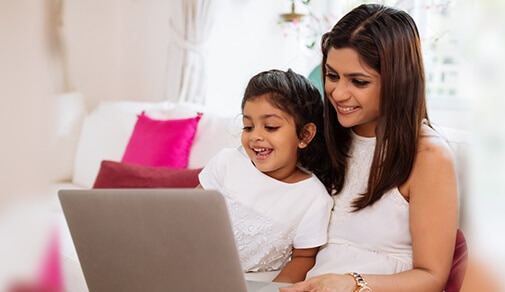Homeschool - Prepare Them For Life Not For Tests
Thursday, Jun 27, 2019 · 5 minutes


HOMESCHOOL - PREPARE THEM FOR LIFE NOT FOR TESTS
Thursday, Jun 27, 2019 · 5 minutes
There has always been a debate on which method of education is the best for children. Opinions on this range from parents and educationalists backing structured learning formats to those who support flexible and learning by experiential methods of education. While the number of children attending formal public schools are considerably higher, there is a growing community of parents who are taking the path less travelled and choosing to homeschool their kids.
With parents turning into tutors and homes turning into connected learning spaces, this form of education is slowly picking up in India. Homeschooling is an alternative to conventional education, but it involves everything that regular public school doesn't offer.
Reasons like affordability, personalized learning, and flexibility - in terms of study schedule and location - are commonly linked to the growth of homeschooling. But more than that it's an opportunity for in-depth study of preferred subjects which are crucial to nurturing a kid'stalent and future.
If homeschooling could be summed up in one word, it would be - FREEDOM.
Homeschooling is an alternative to the cookie-cutter approach of schooling. In this form of education, parents determinedly choose to educate or get their children educated at home instead of sending them to a public school.
Teaching methods in homeschooling count on application-based learning rather than routine memorization of subject matter. The most common methods of homeschooling used in India are:
- Emphasizes 'errorless learning,' where the child learns at his/her own pace and in that way develops full potential. This is a child-centric educational approach which is based on scientific observations of children.
- This method of learning is also known as natural, interest-led, and child-led learning. It mainly advocates learner-chosen activities as a core means for learning.
- Extends the idea of unschooling into all facets of life. It comprises partnering with other children which isn't limited to academic pursuits, but in daily activities including eating, television viewing, and going to bed.
- Training strives to develop a child's intellectual, practical, and artistic skills in an integrated and holistic manner.
- Involves similar teaching methods as used in public or private schools, essentially this method tends to replicate the school environment.
In addition to this, homeschooling involves a bunch of different techniques:
- When a child is intelligent and finds pleasure in learning new things, he/she is encouraged to explore and find out things independently.
- A practical approach or routine-based model is used by parents/tutors to educate the child. Most of the teachings are based on practical examples.
-Parents increase focus on subjects that interest the child to foster specialization. A structured timetable/prescribed course is not followed.
While methods and techniques may vary, the aim behind homeschooling is to customize learning, education and teaching styles based on the unique needs of the child.
There are many benefits of homeschooling children. The most notable:
More than academics, good mental and physical health, and enhanced social development are other areas in which homeschooling helps kids excel.##BlogVASBanner##
In April of 2010, RTE (Right to Free and Compulsory Education) put the legality of homeschooling into question. The ACT mandates compulsory attendance in schools for children aged 6 -14 years. In response to the dilemma of thousands of parents, Mr. Kapil Sibal (Minister of Education) released a statement in September 2010 through The Times of India stating:
"RTE Act wants every child to be in school, but if somebody decides not to send his/her children to school, we [the government] are not going to interfere"

This statement was an official clarification that homeschooling in India is not illegal. Parents seeking certification for their children can use prescribed curriculum by NIOS (National Institute of Open Schooling), IGCSE (International General Certificate of Secondary Education), and CBSE (Central Board of Secondary Education). Homeschoolers in India can take exams from popular boards of education as 'Private Candidates Registered with A School' or through 'The British Council' in some few states/metros/cities or simply sit for NIOS to appear for grade 10 and grade 12 exams.
Technology and the Internet are changing the way we live, interestingly, it's also changing the way we learn and teach. Asking Google has become a way of life for most of us, to possess knowledge immediately. A decade ago, most of the questions or queries went through trips to the library and involved a good deal of time-consuming research. But today, we have a collective force at our fingertips - i.e. Technology & The Internet. A hi-speed and reliable Internet connection is an indispensable component of any homeschool.
Internet and homeschoolenhances education, here's how:
- Get the best of both worlds by pairing homeschool and technology.
- There are more online resources available than ever before. Today, it'snot about how to get or access information, but how to use it.
- Technology has the power of taking the pressure off your shoulders, as it lets you tap into a pool of online resources (audio, visuals and text) when you teach your children subjects which you're unconfident about.
- You can encourage your child to take part in online courses to enhance their knowledge.
- Communicate with remote tutors, friends, and family all over the world.
The curriculum for homeschool is very open-ended, but doesn't make the mistake of just meeting the educational requirements. The benefit of internet for students shouldn't be misjudged, it can serve as a 24/7 teacher for students to ask anything and get answers in return. Today children have to be exposed to the world around and there'sno better place to start with than the World Wide Web. If you want to homeschool your child, uninterrupted, fast internet connectivity is essential to the pursuit of knowledge.
Whether you homeschool or you don't, chances are high that your child is already learning online - and that'ssomething to celebrate! As parents and teachers, it is critical to embrace the Internet method - to educate and leverage your child's potential.

A referral link has been sent to your friend.
Once your friend completes their installation, you'll receive a notification about a 25% discount on your next bill
![]() Please wait while we redirect you
Please wait while we redirect you

![]() One of our representatives will reach out to you shortly
One of our representatives will reach out to you shortly

One of our representatives will reach out to your shortly
![]() Please wait while we redirect you
Please wait while we redirect you

Please enter your registered phone number to proceed

Please enter correct OTP to proceed


Dear customer you are successfully subscribed
Please wait while we redirect you

Your ACT Shield subscription has been successfully deactivated

Dear user, Your account doesn't have an active subscription

Dear customer Entertainment pack is already activated.
Please wait while we redirect you